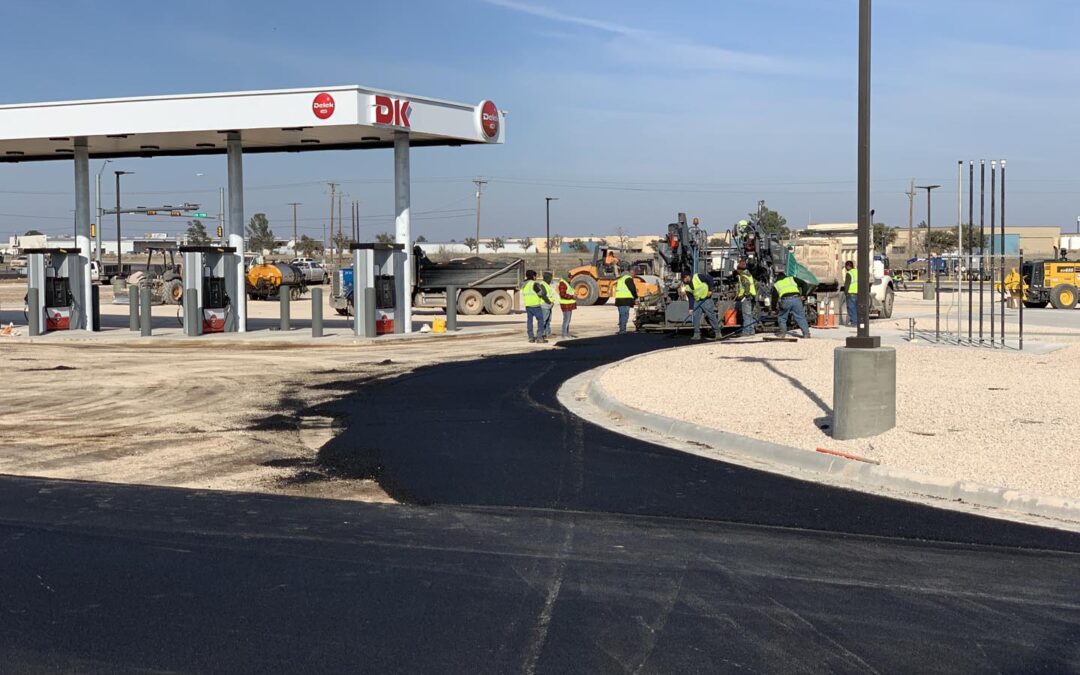Assessing your asphalt’s condition can be a difficult challenge—one that calls for the expertise of a professional asphalt contractor.
Is your asphalt surface showing clear signs of wear and tear?
Perhaps cracks are starting to form, or maybe large cracks are beginning to turn into small potholes.
Whatever the case, it’s important that you address your damaged asphalt sooner than later. Depending on the amount of damage it has already sustained, your asphalt might need to be either resurfaced or replaced.
But it’s also unlikely that you’ll be able to determine this on your own. An experienced commercial asphalt contractor, on the other hand, will be able to assess the level of damage and identify the right course of action.
What Is the Difference Between Resurfacing and Replacing Asphalt?
First things first—people often confuse the terms resurface and replace. What’s the difference between the two terms?
Simply put, resurfacing is the process of removing only the top layer of asphalt and adding a new top layer in its place. Replacing is the process of removing the entire asphalt surface—including the foundation—and paving new asphalt in its place.
Your circumstance may call for either one of these methods. Let’s look at when your asphalt might need to be resurfaced and when it might need to be replaced:
When Your Asphalt Should Be Resurfaced
You can resurface your asphalt as long as any existing damage is manageable.
More specifically, no more than roughly 25% of your entire surface should need repairs, and cracks shouldn’t exceed a quarter inch in width or a couple of inches in depth.
The ability to resurface your asphalt surface will also come down to the condition of your foundation. If your foundation doesn’t have any significant damage, you can replace a damaged top layer with a fresh layer and still expect your asphalt surface to last for another 10 years or more.
If you attempt to resurface your asphalt when there is significant damage to your foundation, however, it’s likely that your brand-new top layer is going to break down quickly—making your decision to resurface a costly and ultimately ineffective one.
When Your Asphalt Should Be Replaced
You should replace your asphalt if existing damage is beyond repair.
The reality is this—if your asphalt’s foundation is beginning to break down or if it is unstable, resurfacing is only going to mask the damage for so long.
Naturally, a fresh top layer of asphalt is still going to be vulnerable when there is trouble brewing below the surface, and because of this, you’ll find that even a brand-new coat of asphalt deteriorates at a much faster rate.
With severe damage to your foundation, replacing the asphalt entirely, on the other hand, will allow you to start from square one with a stable asphalt surface that is rated to last for years to come.
While it’s worth noting that replacing your asphalt is generally more expensive than resurfacing it, replacement will prove to be the more cost-effective decision in the long run.
How significant is the damage to your asphalt? Can your asphalt be resurfaced, or has it reached the point where it needs to be replaced?
Contact Danny’s Asphalt Paving today to find out from a professional commercial paving contractor. We’ll take a close look at your asphalt and help you determine the best course of action for your business!


Recent Comments